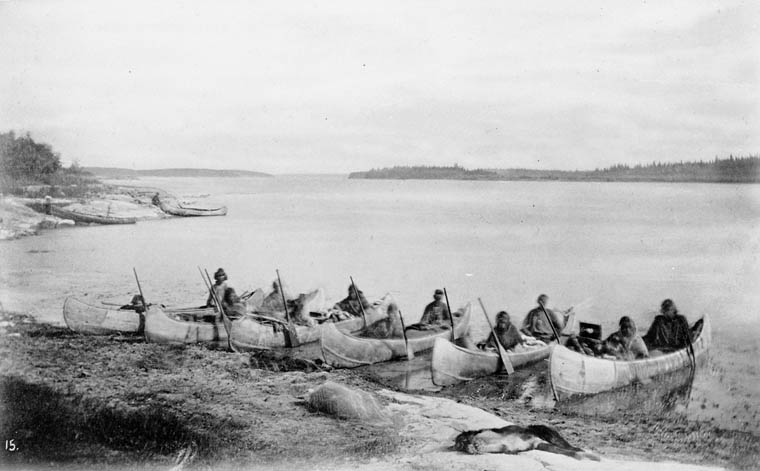Breaking
Winnipeg group aims to mobilize aboriginals to cast ballots in civic election

” width=”760″ height=”471″ /> First Nations people. Original photograph from the collection of Sir Sandford Fleming. Photograph by Robert Bell in the employ of the Geological Survey of Canada / Wikimedia Commons.
WINNIPEG—A social media campaign that aims to be “the new, modern-day smoke signal” is trying to get more First Nations people to the polls in Winnipeg for the Oct. 22 civic election.
Winnipeg Indigenous Rock the Vote 2014 has around 2,200 people signed up on Facebook.
Campaign organizer Jackie Traverse says she and others were partly inspired to set up the website after news stories about racially charged comments made four years ago by the wife of a candidate for mayor.
Gord Steeves has said the comments about aboriginal panhandlers by his wife, Lorrie, showed poor judgment but were not racist.
She wrote about being harassed by what she called “drunken native guys” after she and her children were approached in a threatening manner by a large, inebriated man, and later when she alone was approached by three panhandlers for money.
Traverse, who is an artist, says she hasn’t voted since she was 18 years old but this controversy has motivated her to return to the ballot box.
“Seeing that there is open racism here in the City of Winnipeg, I just feel like we have a voice,” says Traverse. “Our vote matters; let’s do something about this.”
The Facebook page uses slogans such as “Keep Your Coins; We Want Change,” and “When you skip voting, it’s not rebellion, it’s surrender.”
Political analyst Aaron Moore of the University of Winnipeg says voter turnout is typically low among aboriginals.
But he says if the community can be mobilized, election results could be swayed.
“At the ward level, they could have a very significant impact,” he says.
Althea Guiboche, one of the Rock the Vote organizers, says many indigenous people want to vote but face roadblocks—some may not know where to cast a ballot and others may not have the identification needed to do so.
“Nor are they aware of the political issues, the social issues,” she says.
Traverse agrees but says things are starting to change, citing the grassroots political movement in the aboriginal community surrounding missing and murdered women.
“Our people are paying more attention to what’s going on,” she says.
“These things are affecting our people and our children.”





















